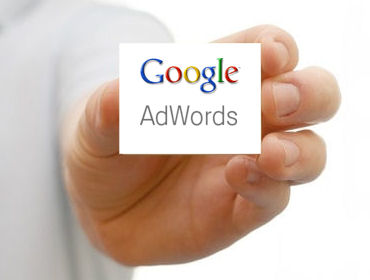Many small business owners believe that Google AdWords campaigns are only cost-effective for large businesses. This isn’t strictly true, though. A small $50,000 AdWords budget can bring your small business a great return on its investment.

You do need to know how to manage your budget carefully, though. Here are a few tips.
Clearly define when starting out what you expect your campaign to achieve
As expert marketing consultants often remind small business advertisers, you get the best results from an advertising campaign when you are able to clearly define right at the start what you expect your campaign to achieve for you. You could, for instance, wish to see your campaign bring in more site traffic or get you more visitors who search with specific keyword phrases. The clearer you are about your objectives, the more effective your campaign will be at delivering the results that you want.
Keep to Google’s own search network
While many e-commerce sites use product listing ads today (these are pay-per-click ads that actually show product images and prices, rather than just text), they operate on bigger budgets. Advertising with simple text-based AdWords is the best way to make use of a modest budget.
Work hard on your keyword research
Many small businesses inexperienced in pay-per-click advertising make the mistake of targeting attractive generic keywords in their advertising. An e-commerce retailer selling shoes, for instance, might be tempted to try selecting a keyword phrase like “running shoes”. Not only are such generic keyword phrases very expensive, they waste your advertising budget by serving your ad up on searches that may not be by shoppers, at all. The more your ad shows up for irrelevant searches, the greater the chances are that someone will click on your ad by mistake.
You need to spend time on thinking up long keyword phrases that target very specific products in your line. Such searches are likely to come from people who are interested in buying. For instance, when a person searches for a specific product by name – like “Nike Revolution 2” rather than “running shoes”– it is likely that he is searching to buy the product.
To further protect yourself from wasteful clicks, you should only target your campaign at Exact Match searches. This way, your ad will not show up when someone searches for “Nike Revolution 2 reviews”. It will show for “Nike revolution 2” alone.
Stay away from dynamic search ads
Dynamic ads are not triggered by the keyword content of someone’s search. Rather, these advertisements show when Google determines that a search has something to do with your product line. This kind of targeting, though, often results in wasted clicks. You should stick to regular pay-per-click ads.
You can save with an exhaustive negative keywords list
The negative keywords list is one of the most useful features on AdWords. On the negative keywords list, you get to specify the keywords that you do not want your ads to show up for. You can use third-party negative keyword generator tools from vendors like SEOBook and Wordstream to generate ideas for keywords that you would not like to see your ads come up for.
The bidding strategy
You should manually set your bid numbers rather than letting AdWords set them automatically. The number you set should be right for the cost per acquisition and the ad position that you decide on. If you seem to quickly reach your daily budget each day on an ad campaign, you could try a lower bid. This move should make sure that your ads appear for longer each day.
Try spying
Tools like Keyword Spy help you get information on the kind of keywords and budgets that your competitor’s AdWords campaigns use. You can use the ideas you get to refine the choices that you’ve made.
When you can’t extend to a bid level
When the cost of the bid to be at the top of the AdWords ads is too high, you should drop out entirely. Being displayed second or third often results in many unintentional clicks.
Use enhanced campaigns
When you have a small budget, you shouldn’t spread yourself too thin by setting up too many ad campaigns. Two or three at a time makes the most sense for small budgets. You can use Enhanced Campaigns, though, to put in higher bids for specific regions of the country that give you good results.















